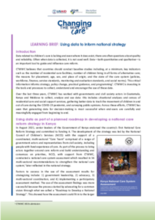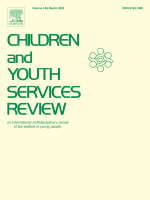Displaying 14041 - 14050 of 14204
Based on experience working with children, families and communities in emergencies, including epidemics, in this policy brief, World Vision outlines a number of recommendations for Governments, UN Agencies, Donors, NGOS, Private Sector and Faith Leaders to mitigate the impacts of COVID-19 on children’s health and nutrition, particularly for vulnerable children.
Former schoolboys at the private school give raw testimonies about abuse meted out by John Brownlee.
This is the monthly update of the Eastern and Southern Africa Regional Learning Platform published in December 2023.
Elevate Children Funders Group (ECFG) seeks a DEIAB consultant to support our network in ensuring that our 2024 AGM prioritizes Diversity, Equity, Inclusion, Accessibility, and Belonging and is a safe and inclusive space for all attendees.
Applications are due by 4 February 2024.
This learning brief was developed as part of the CTWWC 2021 annual report and shares learning from Kenya and Moldova. It is intended to share what the initiative has learned about gathering data and helping governments and their partners to use it for strategizing care reform.
La nouvelle boîte à outils d'évaluation participative de Family for Every Child place les connaissances et l'expérience des organisations de la société civile (OSC) locales en son centre. Elle offre une alternative aux dynamiques d'évaluation traditionnelles, en s'appuyant sur la force des solutions locales.
This paper is a systematic review of studies that examined the implementation and/or effectiveness of the Indian Child Welfare Act (ICWA). ICWA was enacted in 1978 in response to the disproportionate number of American Indian children in non-American Indian out-of-home placements and to enhance the stability of American Indian families and tribes.
This documentary chronicles a Honduran family’s struggle to reunite after being separated at the U.S.-Mexico border three years earlier under the Trump administration’s immigration policies.
The Program Coordinator will support all aspects of Sugira Muryango, a family intervention projects related to early childhood development (ECD) and violence prevention. The coordinator will be responsible for participant and interventionist enrollment, supporting training materials development and facilitation, data collection and management, providing support to field staff and will liaise regularly with partner organizations, local government, and RPCA headquarters in Boston. The Program Coordinator will be based in Rwanda and report to the Program Manager based in Rwanda.
This case study is part of a series of case studies conducted in India, Kenya, Moldova and Uganda over the course of 2020-2022 to share information on how COVID-19 has and is affecting family-child reunification, alternative care placement, and offers recommendations for family- and community-based care of vulnerable children in the context of COVID-19 and future emergencies.






